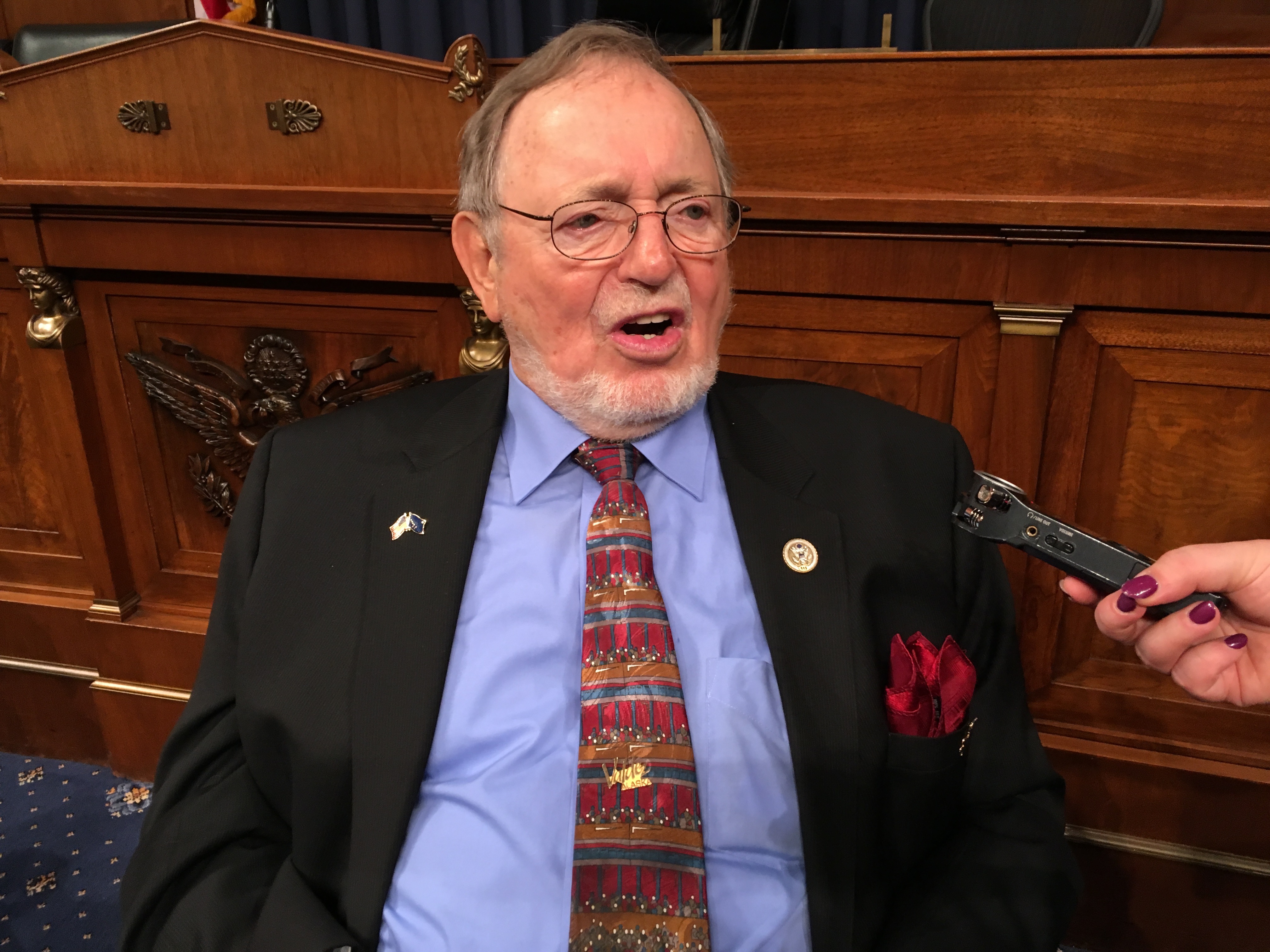
A deregulation bill aimed at boosting energy production on federal lands cleared a U.S. House committee Wednesday.
Known as the SECURE American Energy Act, H.R. 4239 would remove several limits on Arctic drilling, undoing former President Barack Obama’s decision to close off most Arctic waters to leasing.
It allow would states to take over management of oil and gas development on federal land.
States would do a better job, says U.S. Rep. Don Young, R-Alaska, because federal employees try to block development.
“They don’t want to drill oil,” Young said in the House Committee on Natural Resources. “I wish they’d fess up to it. At least we’d know for sure where their loyalty lies. But I really believe if we don’t continue the way they do in Alaska and the Western states, we’ll fall back in that trap of be(ing) dependent on the Middle East countries.”
Young also likes that the bill would share offshore revenues with coastal states.
Alaska would get 37.5 percent of the proceeds from leasing and development in federal Arctic waters.
Wilderness Society government relations director Katy Siddall said the bill is part of a broader “sell-out” campaign.
“This is a bill that is par for the course in what we’re seeing out of, not just the House but the Senate and the administration, on trying to drill anywhere these guys can and hand-off our public lands to private interests,” Siddall said.
Siddall said that if states take over as regulators on federal lands, then the public would lose transparency and opportunities to weigh in.
One of the bill’s worst provisions, as Siddall sees it, is that it would scrap the 2016 safety rules for offshore Arctic drilling.
“It’s already one of the most dangerous place to explore for oil and gas,” Siddall said. “And this just, one, it makes it easier to drill, and two, it makes it even more dangerous.”
Young, on the other hand, maintains the Obama administration’s Arctic drilling regs make future exploration nearly impossible.
The SECURE bill now moves to the House floor. It is sponsored by House Majority Whip Steve Scalise, R-La. His leadership position makes it likely the bill will be brought up for a vote.
